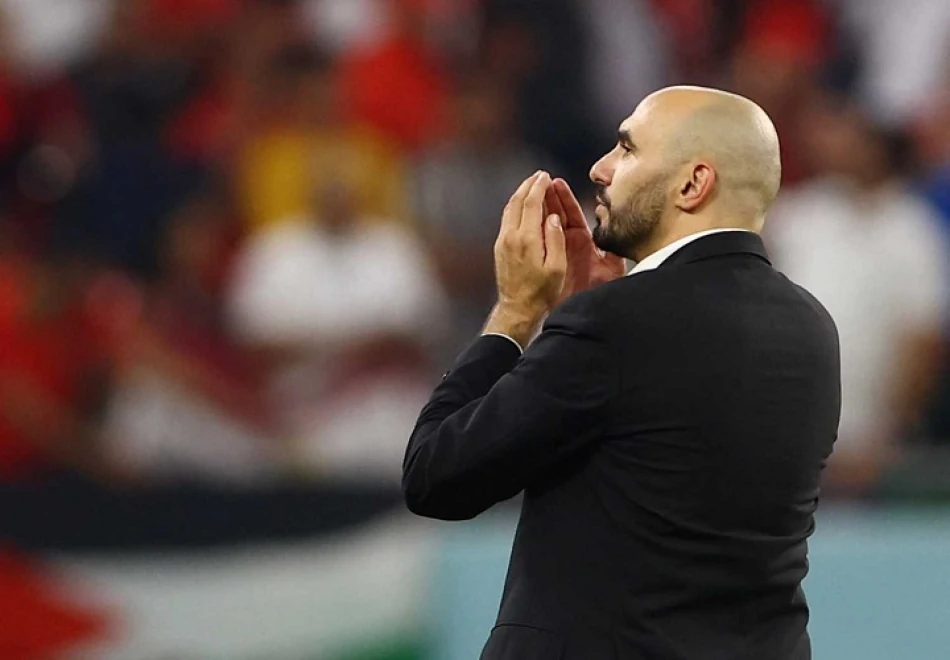
Morocco Calls for 2026 World Cup Bid: Unveiling the Group 5 Match Schedule
Morocco Eyes Historic World Cup Qualification as Africa's First 2026 Contender
Morocco stands on the brink of becoming the first African nation to secure qualification for the 2026 World Cup, needing just one more victory to cement their place in the expanded 48-team tournament. The Atlas Lions will face Niger on Friday in a match that doubles as the grand opening of the rebuilt Prince Moulay Abdullah Stadium in Rabat, marking a pivotal moment for both Moroccan football infrastructure and their World Cup ambitions.
Perfect Record Puts Morocco in Command
Under coach Walid Regragui, Morocco has maintained a flawless qualifying campaign, collecting maximum points from all six matches played. With 15 points from Group 5, they hold a commanding six-point lead over second-place Tanzania, positioning them perfectly to wrap up qualification with two rounds to spare.
The mathematics are straightforward: a victory against Niger, combined with Tanzania failing to beat Congo, would guarantee Morocco's third consecutive World Cup appearance and seventh in their history. Even if Tanzania manages a win, Morocco would still control their destiny, needing just a single point from their final away match against Zambia next week.
Strategic Advantage in Expanded Format
The 2026 World Cup's expansion from 32 to 48 teams has significantly improved African nations' prospects, with nine group winners qualifying directly and four runners-up competing in playoffs. This represents a substantial increase from the five guaranteed spots Africa received in previous tournaments, reflecting FIFA's commitment to global representation.
Morocco's early qualification push demonstrates the strategic value of building momentum early in the cycle. Unlike the knife-edge qualifying campaigns that have historically characterized African football, the expanded format allows technically superior teams like Morocco to capitalize on their consistency and depth.
Infrastructure Investment Signals Broader Ambitions
The timing of Friday's match coincides with the inauguration of the reconstructed Prince Moulay Abdullah Stadium, a 68,000-capacity venue located seven kilometers from central Rabat. The two-year reconstruction project represents Morocco's broader investment in football infrastructure, particularly relevant as they prepare to host the 2025 Africa Cup of Nations in December.
This infrastructure development mirrors successful models from other emerging football powers. Similar stadium modernization programs in countries like Qatar and the UAE have elevated their sporting profiles while supporting long-term development goals.
Star Power and Continental Leadership
Morocco's squad features Paris Saint-Germain defender Achraf Hakimi, currently among the favorites for the Ballon d'Or following his Champions League triumph. Hakimi's stated ambition—"My dream now is to win a title with Morocco... either the World Cup or the Africa Cup of Nations"—encapsulates the heightened expectations surrounding this generation of Moroccan players.
The team's historic fourth-place finish at the 2022 World Cup in Qatar transformed African football's global perception, proving that tactical discipline and technical quality could compete with traditional powerhouses. This breakthrough performance has elevated Morocco from regional contenders to genuine World Cup semifinal material.
Group Dynamics Favor Early Resolution
Morocco's path has been simplified by unusual circumstances within Group 5. Eritrea withdrew before competition began, while Congo has been suspended for their last two matches due to government interference—a reminder of the administrative challenges that continue to plague African football development.
These disruptions have effectively reduced the group to a three-team competition between Morocco, Tanzania, and Niger, with only Tanzania posing any realistic threat to Moroccan dominance. Tanzania's six-point deficit with limited matches remaining makes their qualification hopes increasingly remote.
Market Implications and Regional Impact
Early World Cup qualification would provide Morocco's football economy with crucial planning time and sponsorship leverage. The certainty of participation allows for enhanced commercial partnerships and tourism planning, particularly valuable given Morocco's co-hosting role in the 2030 World Cup alongside Spain and Portugal.
For African football more broadly, Morocco's expected qualification continues the continent's recent upward trajectory in global competitions, following strong showings by African teams in Qatar 2022 and increasing European-based talent choosing to represent their ancestral nations.
Most Viewed News

 Sara Khaled
Sara Khaled






